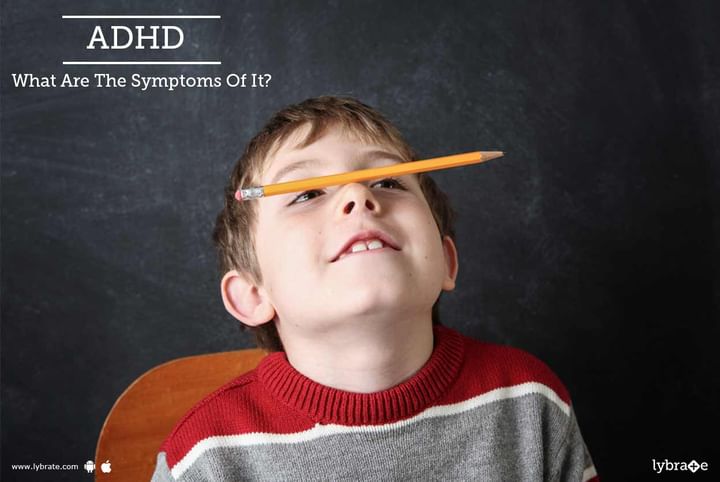ADHD - What Are The Symptoms Of It?
If you have noticed your child to be restless and anxious all the time, it might look cute as the child is highly energetic, but it could be a cause for concern at the same time. It is not normal and the child could be having ADHD that is attention deficit hyperactivity disorder. As the name suggests, it is a disorder with deficiency of attention and in which the child is always hyperactive.
ADHD is a disorder in which the symptoms usually show up before the age of seven. It is characterized by a group of behavioral symptoms that include inattentiveness, hyperactivity and impulsiveness. The impact of these symptoms is felt extensively where his overall self-esteem is affected, be it at home, preschool or school, academics or extracurricular activities and in interpersonal relationships.
The most common symptoms, which are almost diagnostic of ADHD are:
- Inability to hold attention: The child's attention span is very short and it is very difficult to keep them engaged on one particular thing.
- Increased restlessness: The child would be extremely restless and gets distracted easily.
- Fidgeting: The child would be seen constantly fidgeting with his fingers.
The following are the less common ones:
- Learning disability is rare, but can happen. However, the good news is that it does not affect the child's intelligence.
- Sleep disorders
- Difficulty in following directions
- Poor executive functioning skills
- Disorganization, which can lead to poor motor coordination and impaired movements
- ADHD kids tend to forget things very easily and need help with coordinating movements
- The child suffering from ADHD could easily tire and/or feel lethargic with very low energy levels. This can lead to the child procrastinating things and not wanting to do things on priority basis
- These children also have difficulties with fine motor and cognitive skills and so there is delay in their overall participation in games.
While these are the pressing symptoms of ADHD, occupational therapy can play a significant role in managing the child in the following ways. As a first step, the caregiver should have a detailed discussion with the school staff and any other people with whom the child interacts significantly.
This will help identify areas that need support from an Occupational Therapy, which are the following:
- Support with gross and/or fine motor skills
- Support with improving handwriting
- Support with engaging in playing sports and games
- Support in engaging in social activities
- Improving sensory processing difficulties
- Improving visual perception
- Support in adapting to the environment
- Teaching strategies to participate in various social and academic activities
So, while an ADHD child is definitely a cause for concern, proper support from family can help manage the condition.



+1.svg)
